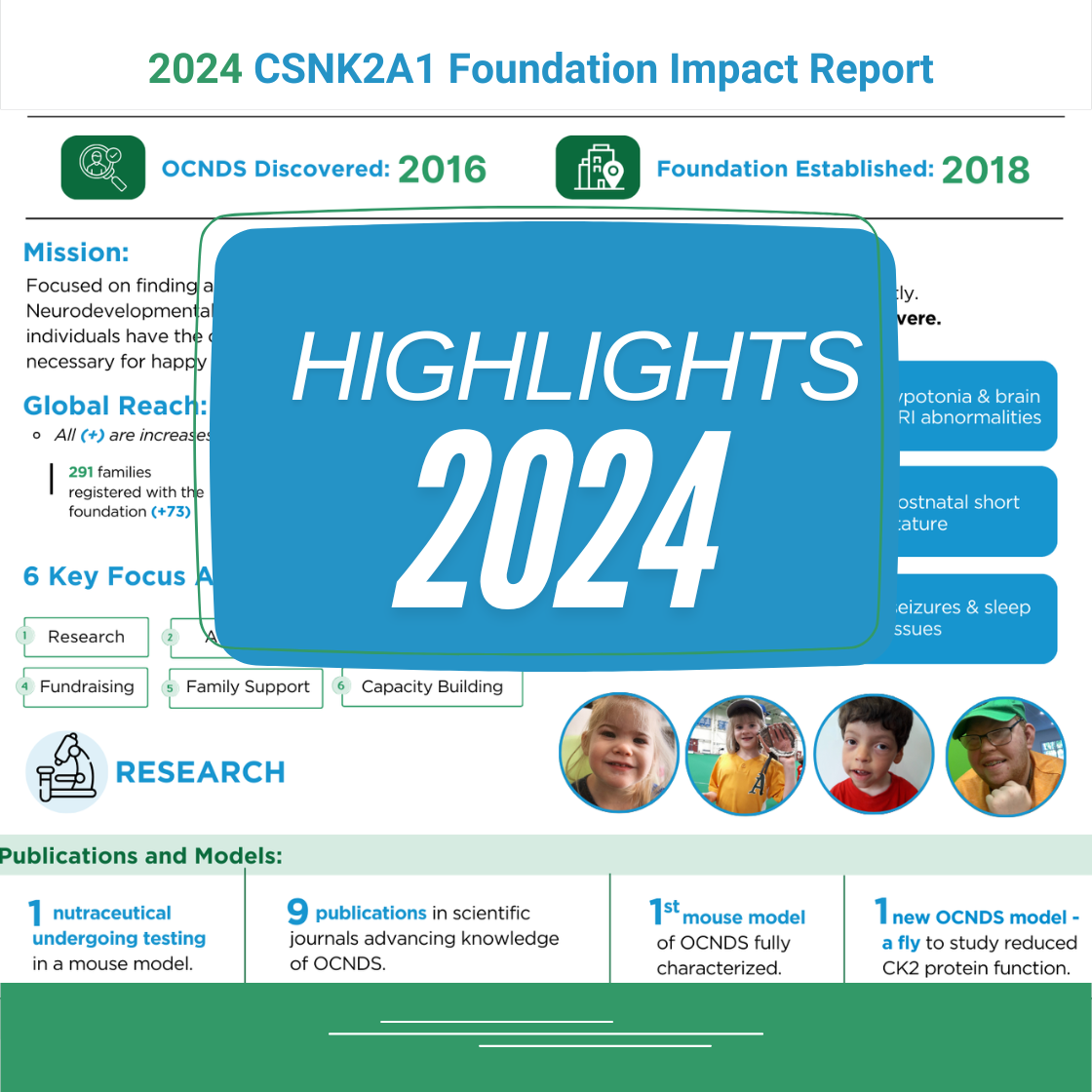Newsletters


We are focused on finding a cure for Okur-Chung Neurodevelopmental Syndrome and ensuring affected individuals have the opportunities and supports necessary for happy and full lives.
CSNK2A1
Foundation is operated and funded through a committed team of volunteers, advocates and researchers.
We are a 501(c)(3) non-profit organization.
EIN #82-4220939.
Address: 1929 Van Ness Avenue, San Francisco, CA 94109
Phone:
(415) 501-0147
Email:
info@csnk2a1foundation.org
The information provided is not intended to be a substitute for professional medical advice, diagnosis or treatment. Never disregard professional medical advice, or delay in seeking it, because of something you have read on this website. Read more...
All Rights Reserved | CSNK2A1 Foundation